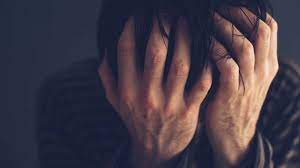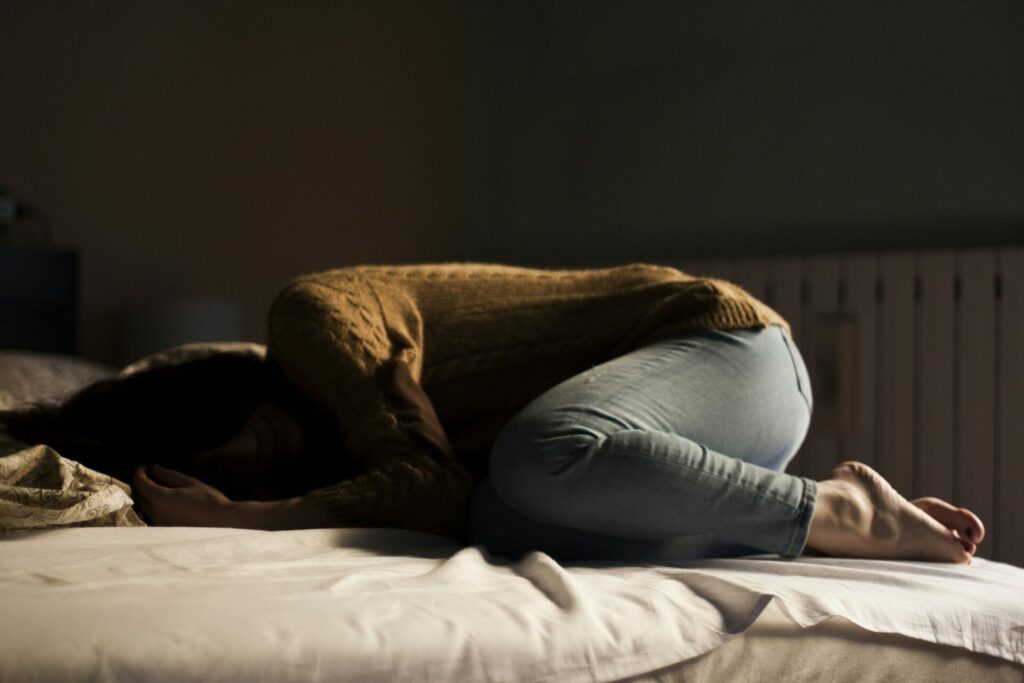Depression is a mental health disorder that causes feelings of sadness and hopelessness. It can affect your mood, thoughts, behavior, and physical well-being. While everyone experiences occasional bouts of depression, those who have debilitating depression experience symptoms so severe that they interfere with their ability to function normally daily. If you or someone you know is struggling with this type of depression, read on for more information about the condition and how to get help.
Contents
- 1 What Is Debilitating Depression?
- 2 What Are The Symptoms Of Debilitating Depression?
- 2.1 Intense feelings of sadness, emptiness, or hopelessness
- 2.2 Loss of interest or pleasure in activities
- 2.3 Changes in appetite or weight
- 2.4 Sleep problems
- 2.5 Irritability or restlessness
- 2.6 Fatigue or decreased energy
- 2.7 Guilt or worthlessness
- 2.8 Difficulty thinking, concentrating or making decisions
- 2.9 Thoughts of death or suicide
- 3 What Causes Debilitating Depression?
- 4 How Is Debilitating Depression Diagnosed?
- 5 What are the Complications of Debilitating Depression?
- 6 What Are The Treatment Options For Debilitating Depression?
- 7 Conclusion
What Is Debilitating Depression?

Debilitating depression is a type of mental illness that is characterized by its intensity and debilitating nature. This kind of depression can make it extremely difficult for those who suffer from it to function on a day-to-day basis. In some cases, the symptoms of this disorder can be so severe that they actually prevent individuals from being able to work or even take care of themselves.
Debilitating depression is often caused by a combination of genetic and environmental factors. There is usually a family history of mental illness within the individual’s immediate family. Additionally, people who suffer from this type of depression often have experienced traumatic events in their lives such as abuse, neglect, or the death of a loved one.
Sometimes there may be many different factors that contribute to an individual developing debilitating depression. It is important to remember that each person’s experience with this disorder will be unique and the symptoms may vary from person to person.
What Are The Symptoms Of Debilitating Depression?

The symptoms of debilitating depression can be very severe and can significantly interfere with an individual’s ability to function in their everyday life. Some of the more common symptoms include:
Intense feelings of sadness, emptiness, or hopelessness
One of the main signs of depression, individuals who suffer from debilitating depression often feels intense sadness, emptiness, or hopelessness. These feelings can be so strong that they prevent the individual from being able to enjoy activities that they used to find pleasurable. Sometimes, the individual may even feel like life is not worth living.
Loss of interest or pleasure in activities
Another common symptom of debilitating depression is loss of interest or pleasure in activities. This can include hobbies, social activities, and sex. Individuals may start to withdraw from friends and family and may no longer take part in activities that they once enjoyed.
Changes in appetite or weight
Depression can often lead to changes in appetite which can result in weight gain or weight loss. People who are depressed may find that they have lost their appetite altogether or they may be eating more than usual. As a result, some individuals may notice a significant change in their weight.
Sleep problems
One of the most common symptoms of depression is sleep problems. People who are depressed may find it hard to fall asleep or they may wake up frequently during the night. They may also find that they are not getting enough restful sleep and as a result, they may feel exhausted during the day.
Irritability or restlessness
Depression can cause people to feel irritable or restless. They may have difficulty concentrating or may be easily agitated. Sometimes, individuals with depression may even act out in destructive ways such as drinking alcohol excessively or engaging in self-harm.
Fatigue or decreased energy
Fatigue and decreased energy are also common symptoms of depression. People who are depressed may find it hard to get out of bed in the morning or they may feel tired all day long. Even simple tasks such as taking a shower or getting dressed may seem like too much of an effort.
Guilt or worthlessness
Individuals with depression often feel guilty or worthless. They may believe that they are to blame for the bad things that have happened to them or that they are not good enough. As a result, they may have low self-esteem and little confidence in their abilities.
Difficulty thinking, concentrating or making decisions
Another common symptom of depression is difficulty thinking, concentrating, or making decisions. People who are depressed may find it hard to focus on tasks and may have trouble remembering things. Additionally, they may have trouble making decisions and may second-guess themselves often.
Thoughts of death or suicide
One of the most serious symptoms of depression is thoughts of death or suicide. People who are depressed may think about harming themselves or taking their own life. If you or someone you know is experiencing these thoughts, it is important to seek professional help immediately.
What Causes Debilitating Depression?

There is no single cause of debilitating depression and it is often the result of a combination of factors. Some of the more common causes include:
Biological factors
Depression can sometimes be caused by changes in brain chemistry or hormones. Additionally, people who have a family history of depression may be more likely to develop the disorder. These biochemical changes can often be the result of stress or other life events.
Sometimes there may be many different types of biological causes for depression. For example, a person may have an imbalance in their neurotransmitters, which can be caused by stress, genetics, or other factors. Additionally, some medical conditions such as hypothyroidism can also lead to symptoms of depression.
Psychological factors
Psychological factors such as negative thinking patterns and low self-esteem can often contribute to the development of depression. People who are constantly exposed to stressful situations or who have experienced trauma may also be more likely to develop the disorder.
Environmental factors
Certain environmental factors such as a lack of social support or exposure to violence can also lead to depression. Additionally, people who live in poverty or who have very demanding jobs may be more susceptible to the condition.
These environmental factors often interact with the other causes of depression to create a perfect storm for the development of the disorder. For example, a person who has a family history of depression and who also lives in poverty is more likely to develop the condition than someone who only has one of these risk factors.
Social factors
Social factors such as isolation, poverty, and bereavement can also contribute to the development of depression. Additionally, people who live in stressful environments or who have a history of abuse are also at increased risk. These social factors often interact with the other causes of depression to create a perfect storm for the development of the disorder.
How Is Debilitating Depression Diagnosed?
There is no single test that can diagnose debilitating depression and it is often diagnosed based on a combination of symptoms.
The diagnosis can be by a GP, psychiatrist, or clinical psychologist. A GP may refer you to a specialist if they think you have depression.
To be diagnosed with depression, you will usually experience some of the above-listed signs. You must visit a professional to get a diagnosis as depression can often be confused with other conditions such as anxiety.
What are the Complications of Debilitating Depression?
The complications of debilitating depression can be very serious. Some of these complications can be:
Problems At School
One of the most common complications of childhood depression is problems at school. Depression can make it hard for kids to concentrate, pay attention, and keep up with their classmates. As a result, they may start to fall behind in school.
Problems With Friendships
Another common complication of childhood depression is problems with friendships. Kids who are depressed may withdraw from friends and activities they once enjoyed. Additionally, other kids may start to avoid them because they seem “weird” or “ different.” This can lead to further isolation and loneliness.
Substance Abuse
Depression is also associated with an increased risk of substance abuse. People who are depressed may turn to drugs or alcohol as a way to cope with their symptoms. Additionally, substance abuse can make depression worse. This can create a dangerous cycle that is difficult to break.
Suicidal Thoughts or Actions
One of the most serious complications of depression is suicidal thoughts or actions. People who are depressed may start to feel like life is not worth living. They may have a suicide plan and may even attempt to take their own life. If you are worried that someone you know may be considering suicide, it is important to get help right away.
What Are The Treatment Options For Debilitating Depression?

There are many different treatment options available for debilitating depression. Some people may require medication to help stabilize their mood, while others may only need therapy. The type of treatment that is best for each individual will depend on the severity of their symptoms and the underlying causes of their condition.
Medication
Many different types of medication can be used to treat depression. Antidepressants are the most common type of medication used to treat the condition. These medications work by increasing the levels of certain chemicals in the brain that are thought to be involved in mood regulation.
There are many different types of antidepressants available, and it is often necessary to try a few different types before finding an effective one. It is important to note that it can take several weeks for these medications to take effect. Additionally, some people may experience side effects when taking antidepressants. These side effects can include nausea, weight gain, and sexual dysfunction.
Therapy
Many people with depression benefit from therapy. Many different types of therapy can be helpful for depression, but cognitive-behavioral therapy (CBT) is often considered the most effective. CBT is a type of therapy that focuses on helping people to change the negative thoughts and behaviors that are associated with their condition.
CBT can be done in individual or group sessions. Many people find it helpful to combine medication and therapy to treat their depression. Other types of therapies can be used as well and they are:
-Interpersonal therapy (IPT): This type of therapy focuses on helping people to identify and manage the relationship problems that may be contributing to their depression.
-Psychodynamic therapy: This type of therapy focuses on exploring the unconscious thoughts and feelings that may be contributing to someone’s depression.
-Behavioral activation: This type of therapy focuses on helping people to identify and change the negative behaviors that are associated with their depression.
Support Groups
Another treatment option for depression is support groups. These groups provide an opportunity for people with depression to share their experiences with others who are going through similar things. Additionally, these groups can provide valuable information and resources.
These support groups are available in person or online. People may prefer to attend a group that meets in person, but there are also many online options available.
Self-Care
Another important part of treating depression is self-care. This includes maintaining a healthy lifestyle, getting regular exercise, and eating a balanced diet. Additionally, it is important to get enough sleep and avoid drugs and alcohol.
Making these changes can be difficult, but they are important for managing depression. It may also be helpful to find an activity that brings joy or meaning to your life. Doing things that make you happy can help to improve your mood and overall well-being.
Conclusion
Debilitating depression is a serious problem that should not be ignored. If you or someone you know is suffering from this type of depression, it is important to seek professional help. With proper treatment, most people with debilitating depression can find relief from their symptoms and lead happy productive lives.
If you are struggling with Debilitating depression, there are many resources available to help you. You can also talk to your doctor or mental health professional about treatment options. There are many effective treatments for deleterious depression, so do not hesitate to seek help if you are struggling. Remember, you are not alone in this fight.
Hope this article was of help to you! If you are suffering from mental health disorders, you may seek help from Therapy Mantra. We have a team of highly trained and experienced therapists who can provide you with the tools and skills necessary for overcoming mental health disorders. Contact us today to schedule an online therapy or download our free Android or iOS app for more information.


